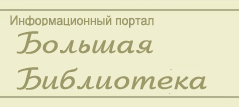Другое : Harry S Truman
Harry S Truman
Harry S Truman
Truman was born in Lamar, Missouri,
in 1884. He grew up in Independence, and for 12 years prospered as a Missouri
farmer.
He went to France during World War I
as a captain in the Field Artillery. Returning, he married Elizabeth Virginia
Wallace, and opened a haberdashery in Kansas City.
Active in the Democratic Party,
Truman was elected a judge of the Jackson County Court (an administrative
position) in 1922. He became a Senator in 1934. During World War II he headed
the Senate war investigating committee, checking into waste and corruption and
saving perhaps as much as 15 billion dollars.
As President, Truman made some of
the most crucial decisions in history. Soon after V-E Day, the war against
Japan had reached its final stage. An urgent plea to Japan to surrender was
rejected. Truman, after consultations with his advisers, ordered atomic bombs
dropped on cities devoted to war work. Two were Hiroshima and Nagasaki.
Japanese surrender quickly followed.
In June 1945 Truman witnessed the
signing of the charter of the United Nations, hopefully established to preserve
peace.
Thus far, he had followed his
predecessor's policies, but he soon developed his own. He presented to Congress
a 21-point program, proposing the expansion of Social Security, a
full-employment program, a permanent Fair Employment Practices Act, and public
housing and slum clearance. The program, Truman wrote, "symbolizes for me
my assumption of the office of President in my own right." It became known
as the Fair Deal.
Dangers and crises marked the
foreign scene as Truman campaigned successfully in 1948. In foreign affairs he
was already providing his most effective leadership.
In 1947 as the Soviet Union
pressured Turkey and, through guerrillas, threatened to take over Greece, he
asked Congress to aid the two countries, enunciating the program that bears his
name--the Truman Doctrine. The Marshall Plan, named for his Secretary of State,
stimulated spectacular economic recovery in war-torn Western Europe.
When the Russians blockaded the
western sectors of Berlin in 1948, Truman created a massive airlift to supply
Berliners until the Russians backed down. Meanwhile, he was negotiating a
military alliance to protect Western nations, the North Atlantic Treaty
Organization, established in 1949.
In June 1950, when the Communist
government of North Korea attacked South Korea, Truman conferred promptly with
his military advisers. There was, he wrote, "complete, almost unspoken
acceptance on the part of everyone that whatever had to be done to meet this
aggression had to be done. There was no suggestion from anyone that either the
United Nations or the United States could back away from it."
A long, discouraging struggle ensued
as U.N. forces held a line above the old boundary of South Korea. Truman kept
the war a limited one, rather than risk a major conflict with China and perhaps
Russia. Deciding not to run again, he retired to Independence; at age 88, he
died December 26, 1972, after a stubborn fight for life.
Список литературы
Для
подготовки данной работы были использованы материалы с сайта http://www.study.ru
|


